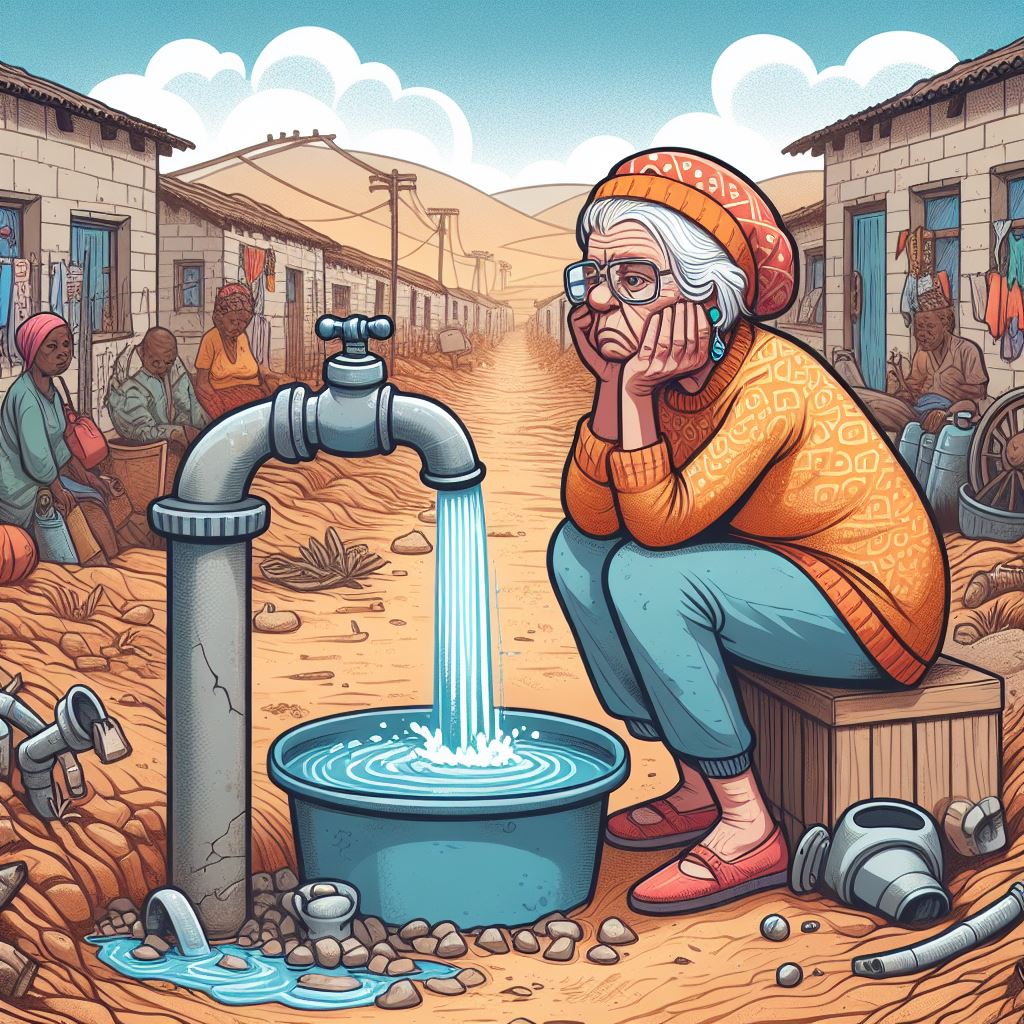South Africa has been grappling with issues surrounding the provision of adequate water services, particularly in marginalized communities. Despite efforts by the government to improve access to clean and safe water, many residents still face challenges due to poor quality water services. In this article, we will analyse how residents could effectively be lobbied to express their dissatisfaction with the poor quality of water services in their communities in South Africa.

The Current Water Crisis in South Africa
Before delving into lobbying strategies, it’s crucial to understand the gravity of the water crisis in South Africa. Despite being a water-rich country, many communities, especially in rural and peri-urban areas, face water scarcity and poor quality water services. Factors contributing to this crisis include inadequate infrastructure, pollution of water sources, inefficient management, and population growth.
Identifying Resident Dissatisfaction
The first step in lobbying residents is to identify and understand their dissatisfaction with water services. This dissatisfaction can stem from various issues such as:
- Poor Water Quality: Residents may experience water that is discolored, foul-smelling, or contaminated, leading to health concerns.
- Irregular Water Supply: Many communities face erratic water supply, with taps running dry for extended periods, disrupting daily life and economic activities.
- Lack of Access: Some communities lack access to basic water services, forcing residents to travel long distances to fetch water from unsafe sources.
- High Water Bills: Despite poor service quality, residents may receive exorbitant water bills, adding financial strain.
Leveraging Community Organizations and Leaders
Community organizations and leaders play a crucial role in mobilizing residents and advocating for change. By partnering with local NGOs, community forums, and influential leaders such as traditional authorities or religious figures, lobbying efforts can reach a broader audience and gain credibility. These organizations can organize community meetings, awareness campaigns, and protests to highlight water issues and demand action from authorities.
Empowering Residents Through Education
Effective lobbying requires an informed and empowered citizenry. Residents need to understand their rights regarding water access and quality standards. Educational workshops, pamphlets, and social media campaigns can inform residents about water rights, government responsibilities, and avenues for lodging complaints. Empowering residents with knowledge enables them to articulate their grievances more effectively and hold authorities accountable.
Advocating for Policy Changes
Policy advocacy is essential for addressing systemic issues contributing to poor water services. Lobbying efforts should target policymakers at local, provincial, and national levels to enact legislation and allocate resources towards improving water infrastructure and management. Collaborating with advocacy groups and leveraging media channels can amplify the voices of residents and pressure policymakers to prioritize water service improvements.
Mobilizing for Collective Action
Lobbying is most effective when residents unite to demand change collectively. Mobilizing residents for collective action involves organizing protests, signing petitions, and engaging in dialogue with relevant stakeholders. Social media platforms and community radio stations can be utilized to rally support and disseminate information. By demonstrating the strength of their numbers, residents can compel authorities to take decisive action to address water service deficiencies.
Monitoring and Evaluation
Continuous monitoring and evaluation are crucial to assessing the impact of lobbying efforts and holding authorities accountable. Residents, along with community organizations, can establish monitoring mechanisms to track progress in water service improvements. Regular meetings, surveys, and site visits enable residents to provide feedback, identify challenges, and advocate for necessary adjustments. Transparency and accountability are essential to sustaining momentum and ensuring long-term change.
Conclusion
In conclusion, lobbying residents to express their dissatisfaction with poor water services in South African communities requires a multifaceted approach that involves community mobilization, education, advocacy, and collective action. By leveraging community organizations, empowering residents through education, advocating for policy changes, and mobilizing for collective action, residents can effectively lobby for improved water services. It is imperative that these efforts are sustained, and authorities are held accountable to ensure equitable access to clean and safe water for all residents.

